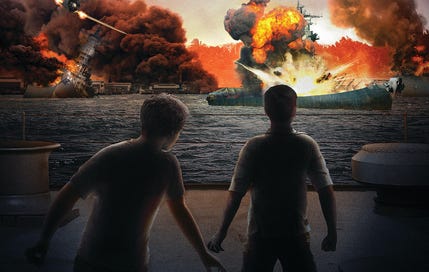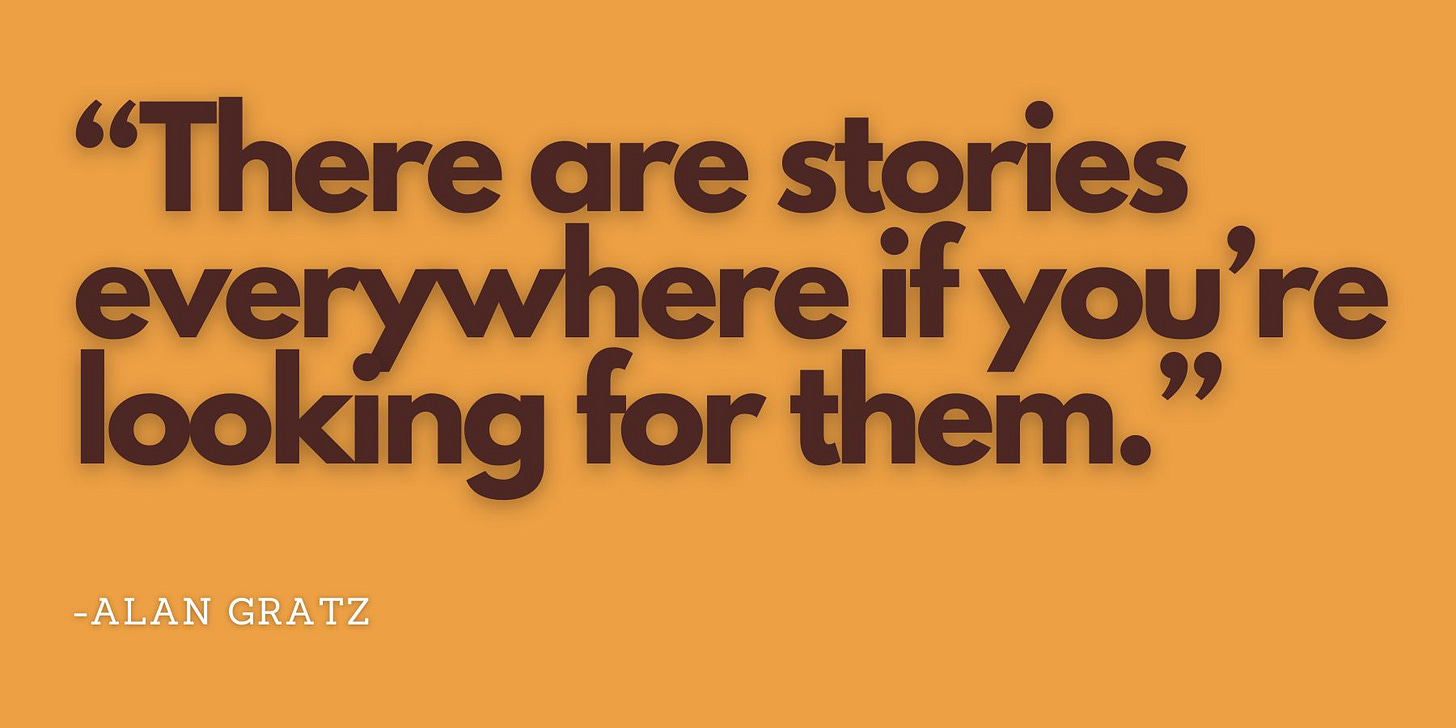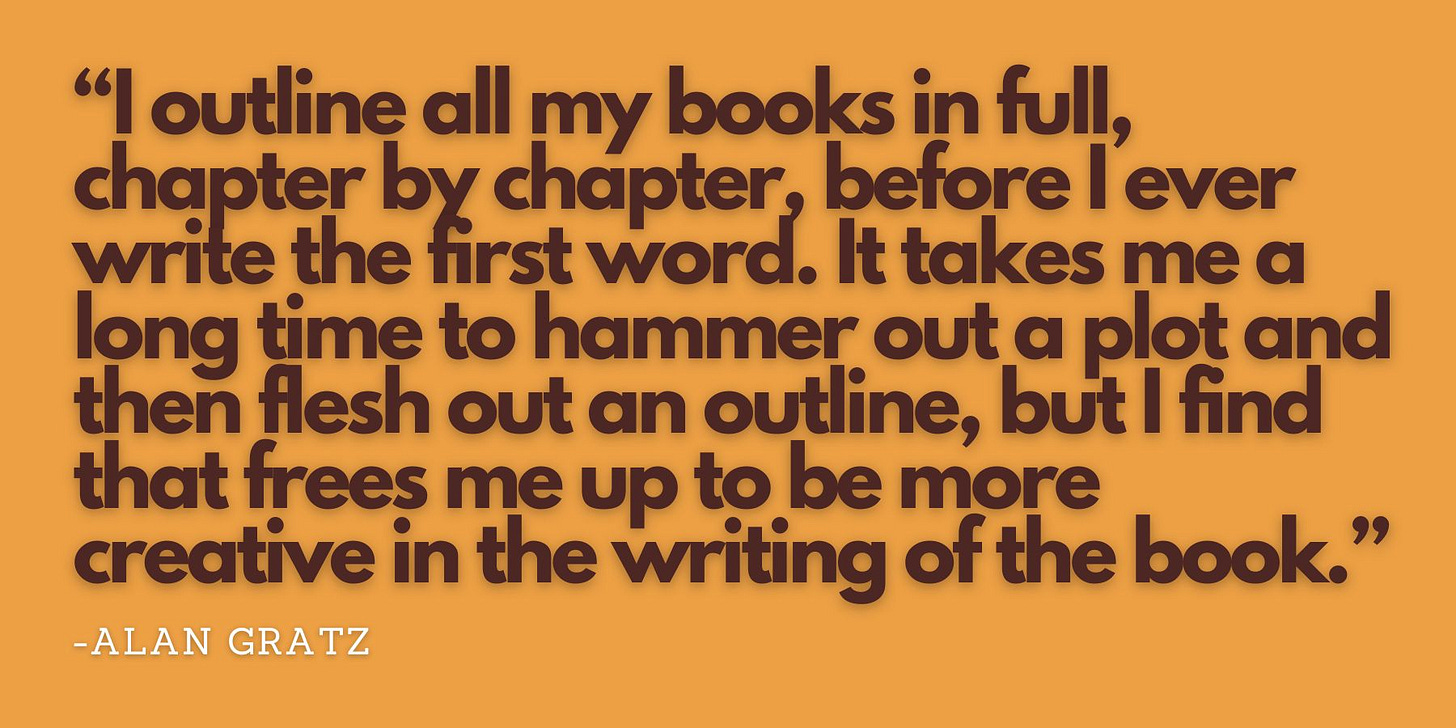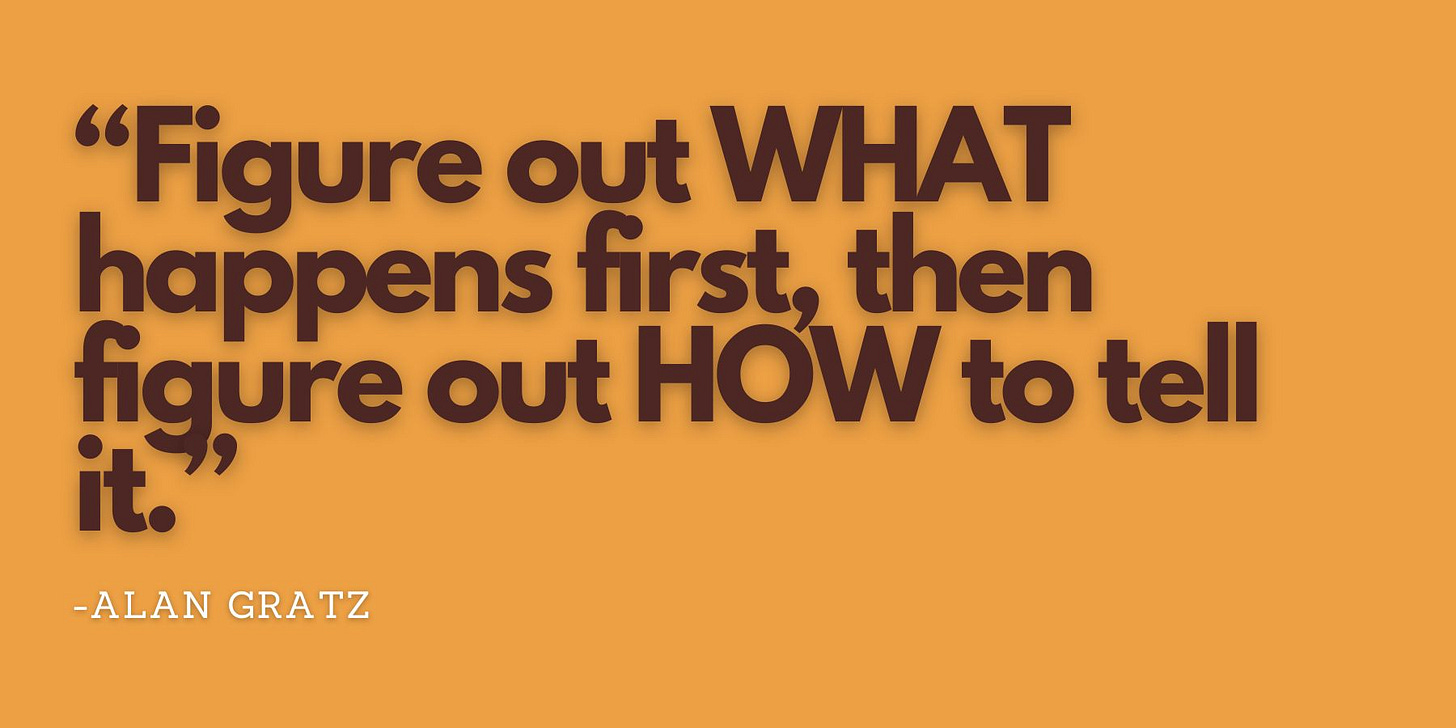Middle-Grade Masters: Alan Gratz and the Power of Story
What I've Learned About Pacing, Research and Character Development from Alan Gratz.
Alan Gratz. A master of the page-turner. His stories grab you. First sentence. They don’t let go until the last. I’m a teacher-librarian. I’ve seen it firsthand. The way kids are drawn to his books. Refugee. Ground Zero. Heroes. Our shelves are always empty despite having multiple copies and digital versions.
I met Alan once. He’s got humor and humility. A passion for story. The heart of a middle school teacher beats within him. He connects with young readers. He inspires writers like me. I’m writing Beyond the Horizon, a middle-grade novel set during World War II. Gratz, he’s a valuable teacher. History, pacing, emotional depth. He balances them all.
Cliffhangers. Lessons in Pacing.
Gratz is a master of pacing. He constructs stories that keep readers hooked. A balance of high-stakes action and quiet introspection. In Heroes, he takes you to Pearl Harbor. The attack. It hits you hard, but you also feel for the characters. It’s emotionally resonant.
Frank and Stanley. Two best friends dreaming of creating comic books. Then, the world shattered. The Japanese attack, December 7, 1941. Chaos and destruction replaced their carefree lives. Gratz uses cliffhangers. They propel the story forward. But he doesn’t forget the characters. Frank and Stanley’s friendship is an anchor, making the stakes feel personal and immediate.
I learned from Gratz that you need fast-paced action but also moments of quiet reflection. In Beyond the Horizon, my characters are Jamie and Ken. I tried to weave the adrenaline of historical events with their intimate struggles. Watching Gratz build tension and release it in Heroes reminded me to let the characters breathe. Their emotions will deepen the reader’s investment.
Ideas. They’re Everywhere.
Where do ideas come from? Gratz says, “All over the place. In line at the grocery store, reading a magazine, surfing the internet. There are stories everywhere if you’re looking for them.” He keeps an idea book. A journal where he records everything. A piece of dialogue. A random quote.
I tell my students to keep journals, whether they are digital or physical, to capture those fragments of inspiration. You never know what might grow from them. I tried carrying a notebook, but the small size was a problem. It couldn’t fit my thoughts, and my handwriting was terrible. It was more frustration than help. Now, I use Google Keep on my phone. I love it. It updates everywhere, no matter where I am. Ideas sparked by overheard conversations. Small, everyday moments. Photos, links, voice notes. It all goes in. The creative process stays alive, brimming with possibilities.
Research. Writing. A Plan.
Gratz is meticulous with research. You see it on every page of his books. In Heroes, he brings the attack on Pearl Harbor to life. Vivid detail. The terror and confusion of the day. He also explores the racial tensions that arose in its aftermath. Stanley, a Japanese American boy. His experience echoes the themes of racism and identity I explore in my book.
History isn’t just about presenting events. It’s about engaging with it. Heroes challenges young readers to confront the injustices of the past and reflect on their relevance today. For me, researching the internment of Japanese Americans during World War II for Beyond the Horizon has been a similar journey. Discovery and reflection. Gratz’s work reminds me that historical fiction isn’t just about retelling events. It’s about uncovering truths that resonate across generations.
He’s a planner. “I’m definitely a planner,” he says. “I outline all my books in full, chapter by chapter, before I ever write the first word.” He has a system. “It takes me a long time to hammer out a plot and then flesh out an outline, but I find that frees me up to be more creative in the writing of the book.”
Writer’s block. Young authors ask him about it. He tells them, when you sit with a blank screen and no outline, you’re trying to do two things at once: “Figure out what happens (plot); and figure out how to tell the story (sentences, images, metaphors, etc.).” Two very different, very difficult things.
His advice is simple. Break it down. “Figure out WHAT happens first, then figure out HOW to tell it.” It works for him, and it might work for you too.
Friendship. Identity. Themes That Matter.
At its core, Heroes is about friendship, identity, and resilience. The attack tests Frank and Stanley’s bond. It exposes the deep prejudices that divide their community. Stanley’s mother is of Japanese heritage. Suddenly, she’s “the enemy.” And, by extension, so is Stanley. Gratz captures the pain of betrayal and the weight of societal prejudice. He shows how war can fracture even the closest relationships.
These themes hit close to home as I wrote Beyond the Horizon. The prejudices of their community similarly test Jamie and Ken’s friendship. They are forced to navigate questions of loyalty and identity. What does it mean to stand up for what’s right? Gratz explores these themes with nuance and empathy. His work inspires me to approach my characters’ struggles with the same level of care.
A Gateway. To More Stories.
One of the joys of being a teacher-librarian is witnessing it. The hunger for more books. Sparked by an author like Alan Gratz. Students devour Refugee, Ground Zero, Allies, and Heroes. Then they return to the library, asking, “What can I read next?” For the readers who love the historical fiction components of Gratz’s work, it’s a thrill to recommend other authors. Esperanza Rising by Pam Muñoz Ryan. Out of the Dust by Karen Hesse. Serafina’s Promise by Ann E. Burg. Jack London’s The Call of the Wild. A Long Walk to Water by Linda Sue Park. Bud, Not Buddy by Christopher Paul Curtis. Stella by Starlight by Sharon M. Draper. For those who are eager to read more in the adventure arena, I put together a list of over 700 middle-grade titles for my students. As their enthusiasm for reading expands, it reminds me of why I love my job!
A True Master.
Alan Gratz. He has an extraordinary ability to take pivotal historical moments and make them accessible to young readers. The Holocaust in Refugee. The 9/11 attacks in Ground Zero. The bombing of Pearl Harbor in Heroes. He tells stories that resonate with readers of all ages. His books are windows into the past. But they are also mirrors, reflecting the challenges and questions we face today.
His advice to writers is to look for stories everywhere and keep an idea book, which has been transformative for me. His process reminds me to remain open to inspiration and nurture ideas even if they don’t immediately become stories. I utilize my Google Drive to hold the notes, snippets, photos, and ideas. Every so often, I comb through those folders to explore those seeds to see what’s ‘grown’ in my own consciousness. As I grow in my own journey as a writer and educator, I continue to learn from his wisdom, humor, and unshakable commitment to storytelling.
Here is a link to Gratz’s personal website.
Here is a link to Alan Gratz’s page on TeachingBooks. It is full of amazing resources for readers of all ages.
Next, in our Middle-Grade Masters series, we’ll dive into the work of Jennifer Nielsen. Stay tuned.






